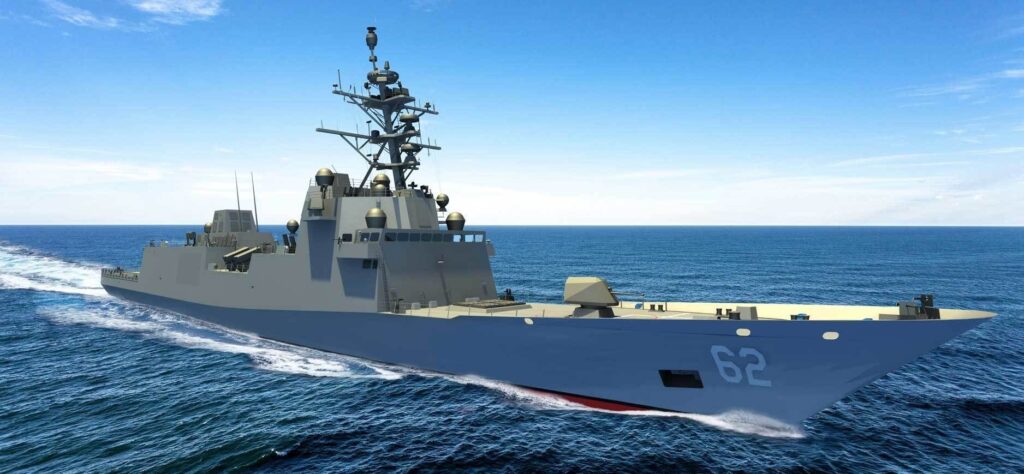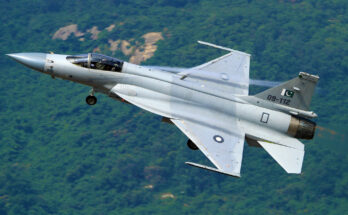
The U.S. Navy’s selection of the Italian version of FREMM for its FFG 62 Constellation class frigate program can only be described as a stunning success for Fincantieri. This decision overturned over 200 years of U.S. Navy tradition — for in all that time, it has been an abiding U.S. Navy principle that all its major surface combatants would be designed in the United States.
Exceptions to that rule have existed but have been minor. A handful of Norwegian motor torpedo boats were procured in the 1960s, served in Vietnam, and were then scrapped. A total of 15 British Flower-class patrol gunboats and 20 River-class patrol frigates were delivered to the U.S. Navy in World War II under reverse lend-lease. All of these ships filled largely auxiliary roles as weather ships or performing local training duties and were quickly returned or scrapped at the end of the war. In contrast, FFG 62 is a major surface combatant that is considered a capital ship in the other navies that operate frigates. To have this FREMM-based ship selected by the U.S. Navy in preference to locally designed competitors is a ringing endorsement of the FREMM design and will revitalize the prospects of FREMM frigates on the world market.
Also worth noting, the Constellation class frigates will reportedly use the Thales CAPTAS-4 low-frequency variable depth sonar (VDS) instead of the Raytheon SQS-62 Dual-mode Array Transmitter (DART) VDS which the U.S. Navy cancelled while in development. The SQS-62 was originally intended to replace the SQS-56(V) sonar.
Unfortunately, the U.S. Congressional Research Service released a January 16, 2024, update to its report “Navy Constellation (FFG 62) Class Frigate Program: Background and Issues for Congress” stating in January 2024 it was reported that delivery (commissioning is usually 6-12 months after delivery) of the first ship, USS Constellation (FFG 62), is at least 12 months behind schedule due to a shortage of skilled workers. The lead ship was originally planned for delivery in September 2026 but is now looking like 2027 or even later.
According to the report, the U.S. Navy plans to increase procurement of future ships to two per year to make up for the delay and bring the program back to its originally planned commissioning schedule after the first few ships.
This is a noble and ambitious plan but past experience points to the entire program running later than originally envisioned. The FREMM design itself is solid and proven; there will be little technical problems with its construction even when adding U.S.-specific requirements. The real root of the delay is a shortage in long-lead materials and skilled shipbuilders. Neither of these issues can be solved overnight. It takes time to gather materials and train a skilled workforce. With luck, maybe the last batch of frigates will be commissioned closer to the original schedule.
The first Constellation class frigate was intended to be delivered in 2026 but has now been pushed out to sometime in 2027 with commissioning possibly as late as 2028 due to first ship of class always taking a bit longer in pre-commissioning trials and shake downs.
In other Constellation class news, on January 15, 2024, Greece’s Prime Minister Kyriakos Mitsotakis received a letter of approval from U.S. Secretary of State Antony Blinken for the allocation of four Freedom class variant Littoral Combat Ships as part of an overall equipment package which was quickly followed by an announcement from Greece’s Defense Minister Nikos Dendias saying that Greece wants to build seven of its own FFG 62 Constellation class frigates and are in discussions with the U.S. about a possible joint production.
The Greek version would be a smaller variant of the U.S. Constellation class frigate which itself is a variant of the FREMM frigate design. This begs the question wouldn’t the Greek version be just another variant of the successful FREMM frigate design which as spawned several custom variants? Why say you want to build your own Constellation class and then say it is not going to be a copy of the Constellation class?
For the moment, this is just Greece talking out loud with no real plans in place. This is something Greece (and the Hellenic Navy) has a history of doing — talking boldly of grands plans and visions that never come to fruition.
For more than 30 years, Richard has performed numerous roles as a top analyst for Forecast International. Currently, Richard is the Group Leader and Lead Analyst for Forecast International's Traditional Defense Systems, which covers all aspects of naval warfare, military vehicles, ordnance and munitions, missiles, and unmanned vehicles.
Having previously been Forecast International's Electronics Group Leader for 20-plus years, Richard established Electro-Optical Systems Forecast, as well as having been the prime editor of Electronic Systems Forecast, Land & Sea-Based Electronics Forecast, and C4I Forecast. Additionally, Richard has served as the Naval Systems Group Leader responsible for Anti-Submarine Warfare Forecast andWarships Forecast.




